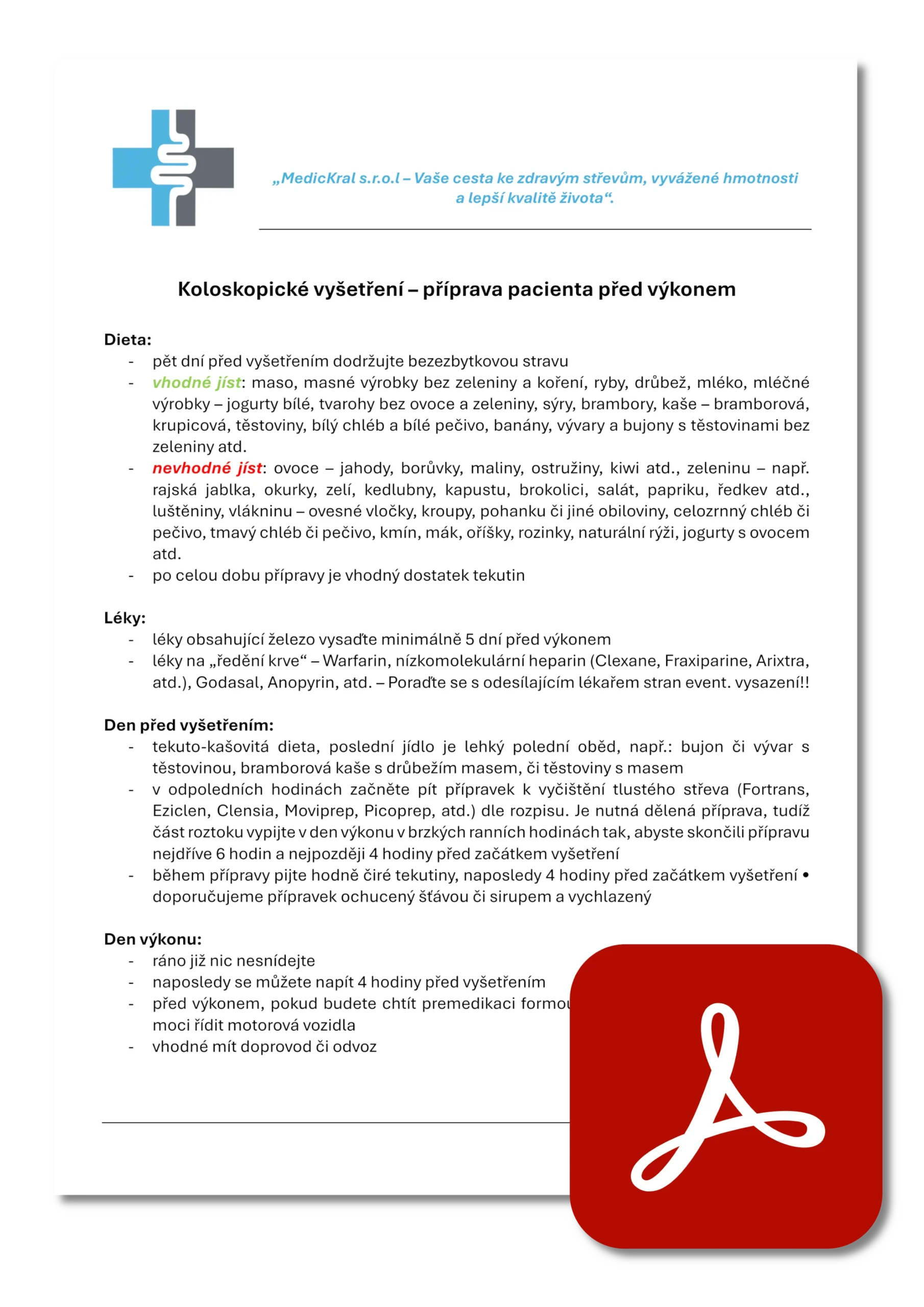Colonoscopy
What is a colonoscopy?
Colonoscopy is a diagnostic and therapeutic examination of the large intestine and rectum using a colonoscope—a long, flexible tube equipped with a camera at the end. This examination allows for a detailed assessment of the condition of the colon mucosa, the diagnosis of various diseases, and, if necessary, therapeutic procedures. Colonoscopy is an essential tool in the prevention and diagnosis of diseases such as colorectal cancer.

How is a colonoscopy performed?
Colonoscopy is usually an outpatient procedure that lasts 20–45 minutes. The patient lies on their left side with their knees drawn up. After administering analgesics to ensure comfort and reduce discomfort, the doctor introduces the colonoscope into the rectum and guides it through the colon. The camera at the end of the device transmits images to a monitor, enabling the doctor to thoroughly examine the intestinal lining and identify any pathological changes such as inflammation, polyps, ulcers, or tumors. During the procedure, a tissue sample (biopsy) may be taken or small polyps may be removed.
Why is a colonoscopy performed?
Colonoscopy is a key examination for a range of gastrointestinal issues and the prevention of serious diseases. The most common indications include:
- Preventive screening: to detect polyps and prevent colorectal cancer in individuals over 50 years old or those with a family history of the disease.
- Chronic digestive issues: such as diarrhea, constipation, blood in the stool, or unexplained abdominal pain.
- Suspected inflammatory bowel diseases: such as Crohn’s disease or ulcerative colitis.
- Bleeding from the lower gastrointestinal tract: to locate the source of the bleeding.
- Monitoring after treatment: for patients previously diagnosed with polyps or tumors.
How to prepare for a colonoscopy?
An essential part of a successful colonoscopy is bowel preparation. The patient must follow a special diet a few days prior to the examination, restricting foods that leave residues, and on the day before the procedure, the patient will need to drink a prescribed solution to cleanse the bowel. The patient must fast for at least 6 hours before the procedure. If the patient takes long-term medications, they should consult with the doctor regarding their use.
Is a colonoscopy painful?
Colonoscopy is typically more uncomfortable than painful. Patients may feel pressure or bloating due to the air introduced into the colon, which improves visibility during the procedure. The administration of sedatives or analgesics significantly reduces discomfort, and most patients tolerate the procedure well.
Safety and benefits of colonoscopy
Colonoscopy is considered a safe procedure with minimal risk of complications when performed by an experienced professional. Rare complications may include bleeding or bowel perforation. However, the benefits of early diagnosis and prevention of serious diseases, such as colorectal cancer, significantly outweigh the minor risks or discomfort associated with the procedure.
Option for Entonox inhalation
Entonox is used as a form of analgesia. It is a safe and fast-acting method to alleviate discomfort during the procedure. Its analgesic effect reduces the perception of pain, making the procedure more tolerable. The anxiolytic effect calms the patient and helps them better cope with the discomfort associated with the insertion of the endoscope. Entonox is safe, easy to use, and represents a suitable alternative to pharmacological sedation.
Price for Entonox inhalation: 700 CZK
